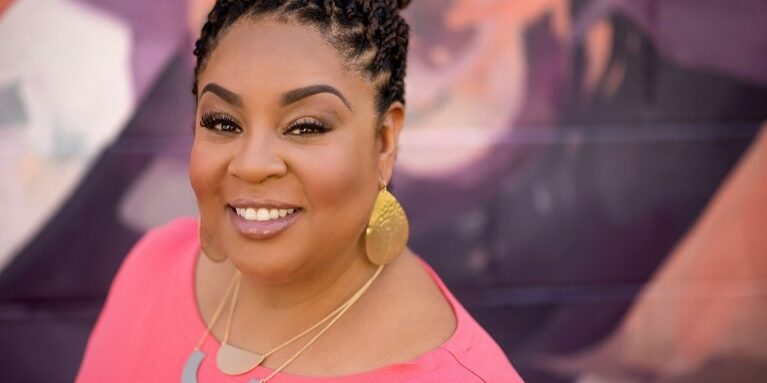
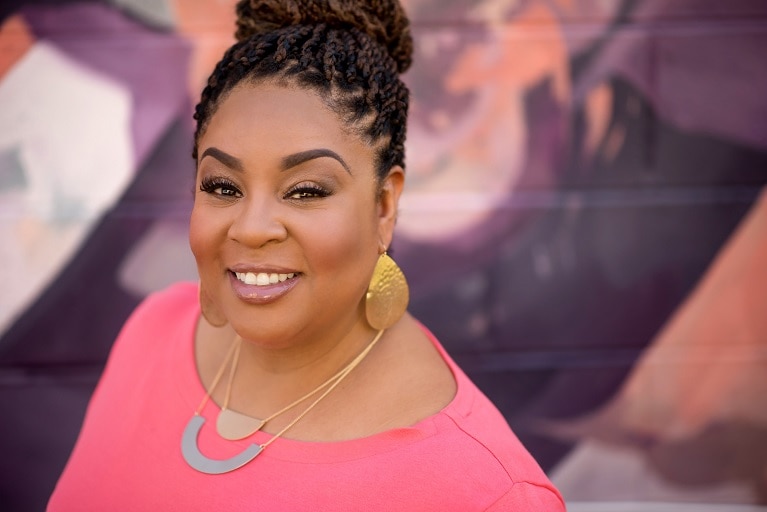 Special thanks to Tamika Felder, cervical cancer survivor and founder of Cervivor, for this guest blog post focused on dispelling myths about human papillomavirus (HPV), a common cause of cervical cancer, and encouraging vaccination during Cervical Health Awareness Month and HPV Awareness Week.
Special thanks to Tamika Felder, cervical cancer survivor and founder of Cervivor, for this guest blog post focused on dispelling myths about human papillomavirus (HPV), a common cause of cervical cancer, and encouraging vaccination during Cervical Health Awareness Month and HPV Awareness Week.
The term “fake news” has become politically charged. Yet, on all sides of the political spectrum, we can likely agree that misinformation and misconceptions can be harmful when it comes to public health information. Take the myths surrounding human papillomavirus (HPV) vaccines, for example:
The Facts
HPV can cause six different types of cancer:
- cervical, vaginal, and vulvar cancer in women
- penile cancer in men
- throat and anal cancer in both men and women
More than 44,000 men and women get HPV-related cancers in the US each year.
A Vaccine That Can Help #PreventCancer
Today, these are all cancers that can be prevented through vaccination. But our best prevention tool—HPV vaccination—has not been fully utilized in the US. According to 2017 data from the Centers for Disease Control and Prevention (CDC), only 48.6 percent of adolescents in the US were up-to-date with the recommended HPV vaccine series.
I take this very personally—I am a cervical cancer survivor. When I was diagnosed 18 years ago, there was not a vaccine available to help prevent my cancer. Each year in the US, more than 13,000 women are diagnosed with advanced cervical cancer (and hundreds of thousands more with cervical precancer). More than 4,000 women in the US die each year from cervical cancer. Globally, the numbers are even more staggering. Nearly 500,000 women are diagnosed with cervical cancer, and more than 270,000 women lose their lives to this cancer worldwide each year.
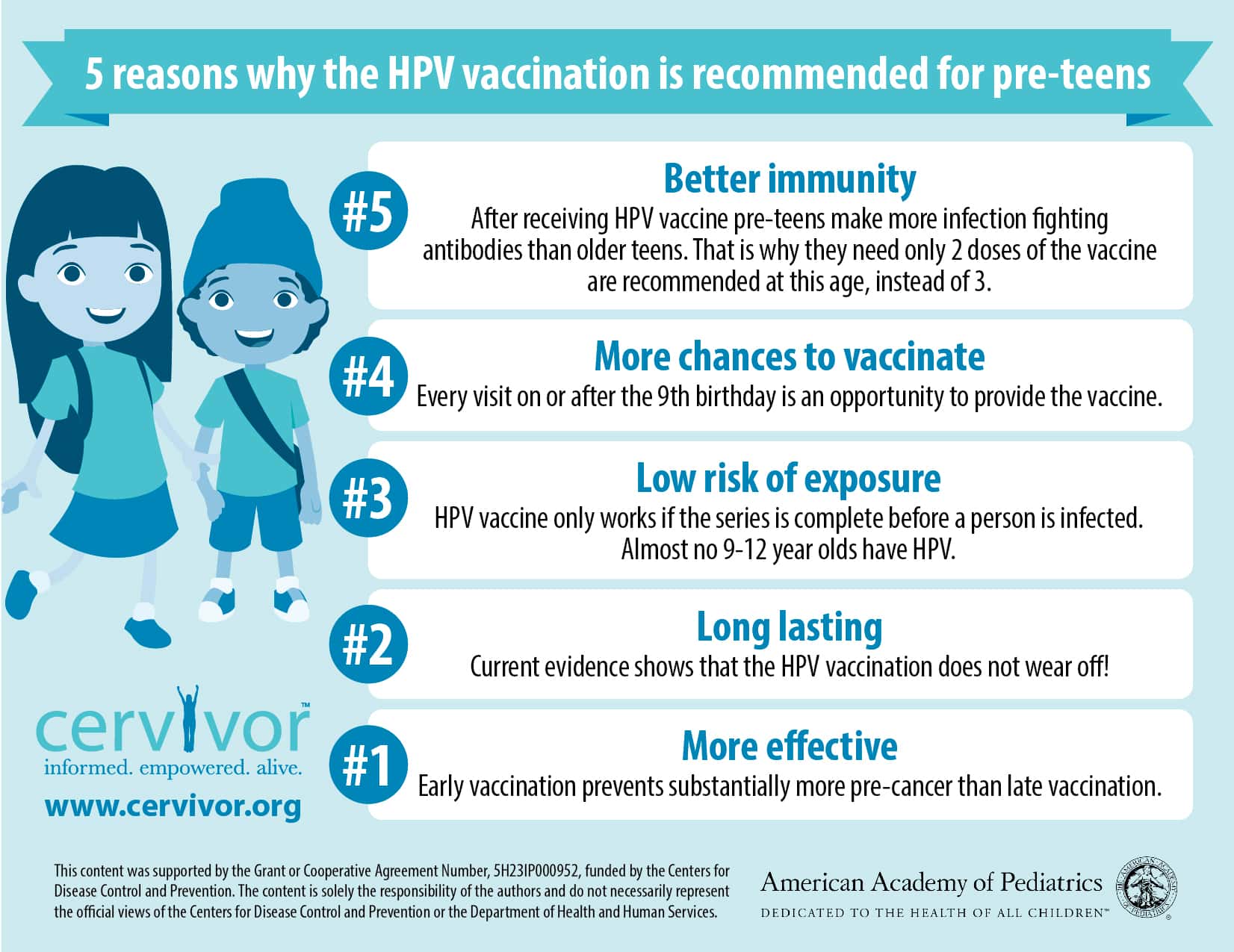
Myths continue to surround the vaccine: “It isn’t safe,” or “’Getting the HPV vaccine will encourage adolescents to be more sexually promiscuous” or “Only girls need it, not boys.”
The myths and misconceptions have obscured the importance of the vaccine for cancer prevention—for both males and females.
The more parents who take their children to get vaccinated, the broader the protection across the population, and the closer we will get to our goal of ending cervical cancer and other HPV-related cancers.
How Can We Encourage Broader HPV Vaccination?
Cervical cancer, vulvar cancer, vaginal cancer, and penile cancer prevention—these aren’t easy subjects to talk about. I certainly felt alone when I was going through my cancer diagnosis and treatment. I didn’t know anyone who had been in my shoes or who had gone through what I was going through.
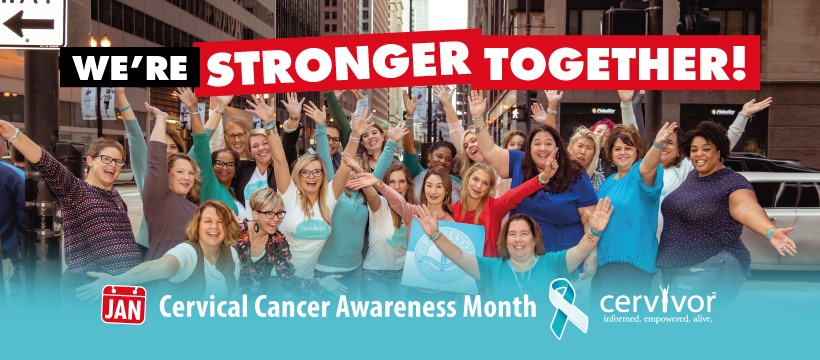 Once I realized that I had actually beat my cancer, I wanted to make sure no one else felt the way that I had felt during my diagnosis and treatment. I founded and fostered a network of other survivors to support each other, and to educate and advocate for cancer prevention so that we could prevent other women from having to experience what we went through. Today, we are Cervivor, a global community of cervical cancer survivors who put ourselves out there, share our stories, and make HPV, cervical cancer, and the HPV vaccine un-ignorable, un-embarrassing, and un-stigmatized.
Once I realized that I had actually beat my cancer, I wanted to make sure no one else felt the way that I had felt during my diagnosis and treatment. I founded and fostered a network of other survivors to support each other, and to educate and advocate for cancer prevention so that we could prevent other women from having to experience what we went through. Today, we are Cervivor, a global community of cervical cancer survivors who put ourselves out there, share our stories, and make HPV, cervical cancer, and the HPV vaccine un-ignorable, un-embarrassing, and un-stigmatized.
January is Cervical Cancer Awareness Month. Working together, we can be the generation to end cervical cancer and other HPV cancers! Please, make sure you talk with a healthcare professional about HPV vaccination.
US Vaccine Recommendations
HPV vaccine may be given beginning at age 9 years, and as late as age 45 years. CDC recommends that all 11- to 12-year-olds get two doses of HPV vaccine to protect against cancers caused by HPV.
Both males and females up to age 26 years who were not adequately vaccinated should receive catch-up HPV vaccination. Adults age 27-45 years should talk to a healthcare professional about whether HPV vaccination is right for them. Shared clinical decision-making is recommended because some individuals who are not adequately vaccinated might benefit from vaccination.
Visit www.nfid.org/hpv to learn more about how to prevent HPV.
To join the conversation, follow NFID (@NFIDvaccines) and Cervivor (@IamCervivor) on Twitter using the hashtags #CervicalHealthMonth and #HPVAwarenessWeek, like NFID and Cervivor on Facebook, follow NFID and Cervivor on Instagram, join the NFID Linkedin Group, and subscribe to receive future NFID Updates.
Related Posts
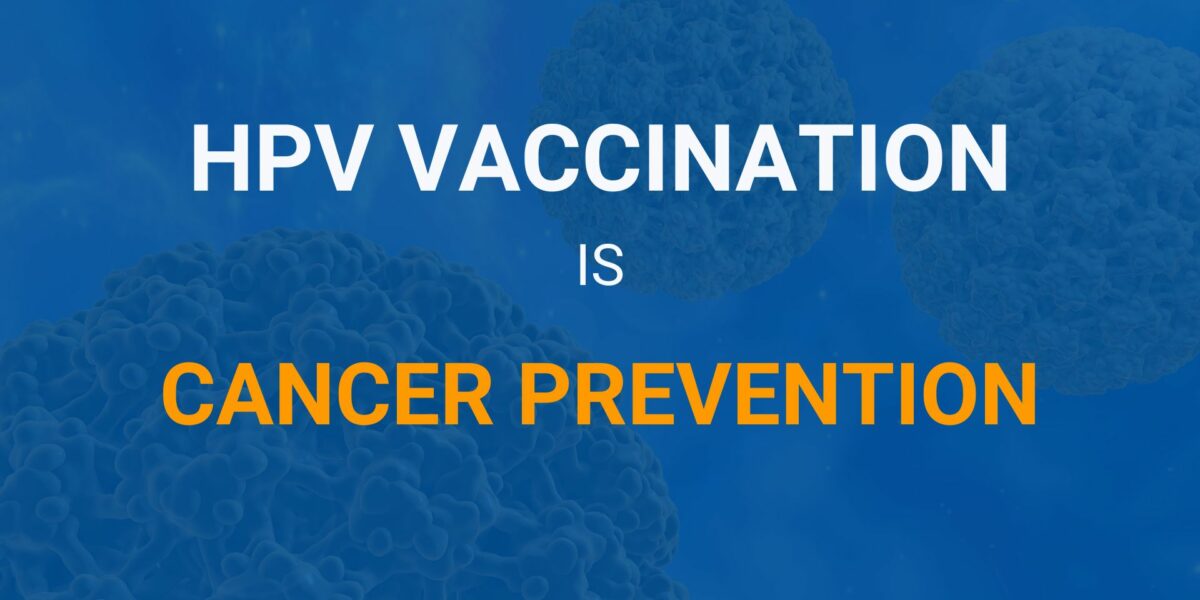
The Key to Preventing Cervical Cancer
January is Cervical Cancer Health Month, an important time to raise awareness and empower individuals to protect themselves against this often preventable type of cancer

ID News Round-Up: Bird Flu, COVID-19, HPV, and Norovirus
Read recent news of interest from the world of infectious diseases including insights and explanations on bird flu, COVID-19, HPV, and norovirus …
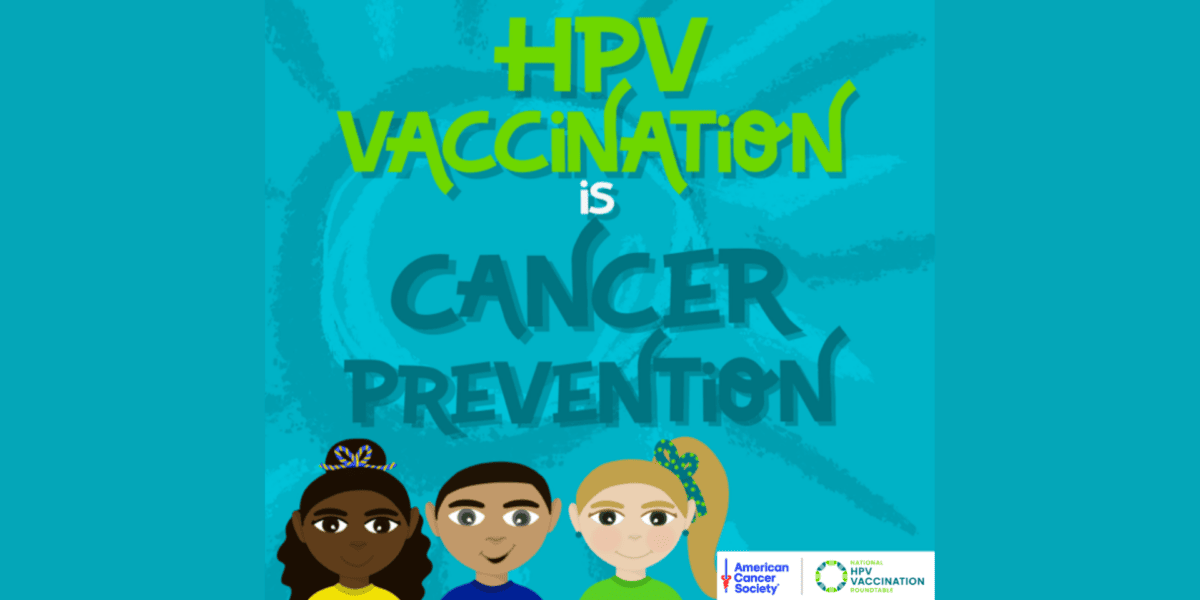
2 Simple Steps to Prevent Cervical Cancer
Vaccination helps protect against cervical cancer and other cancers caused by HPV
